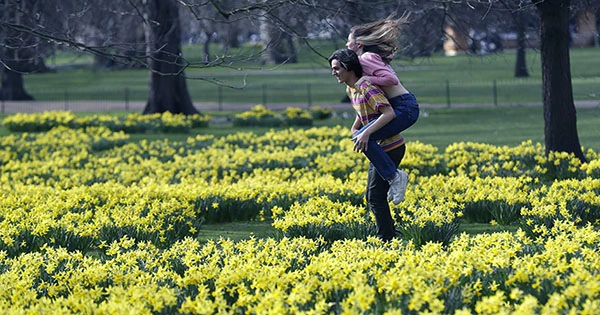Plants’ blossoming times are shifting as a result of the UK’s climate problem. Researchers at the University of Cambridge have discovered that during the last three decades, the average first blooming date has been a full month sooner than in the past, based on data spanning hundreds of years. Nature’s Calendar, a citizen science database managed by the Woodland Trust that dates back to the mid-1700s, was used to compile the findings, which were published in Proceedings of the Royal Society B. More than 400,000 observations of 406 plant species were evaluated by the researchers. The dates of these sightings ranged from 1753 to the present.
The scientists separated the observations into two groups to better balance the quantity of observations. From 1753 through 1986, and then again from 1987 to the present. The average first flowering has pushed by a full month in recent years, and it is strongly linked to rising world temperatures. “We can use a wide range of environmental information to see how climate change affects different species,” lead author Professor Ulf Büntgen of the University of Cambridge said in a statement.
“However, most records we have only include one or a few of species in a relatively small area.” “We need much larger datasets that look at whole ecosystems over extended periods of time to truly grasp what climate change is doing to our environment.”
The fact that the first flowering date has shifted is problematic. At this rate, spring might arrive in the UK in February, posing a serious threat to many species that are unable to adapt to quick seasonal changes. “The findings are extremely concerning,” Büntgen remarked, “because of the ecological dangers connected with early flowering seasons.”
“A late frost can destroy plants that flower too early, a condition that most gardeners have experienced at some point. The ecological mismatch, on the other hand, is a far greater danger. Plants, insects, birds, and other creatures have co-evolved to the point where their developmental stages are coordinated. When a specific plant blooms, it attracts a specific species of insect, which in turn attracts a specific type of bird, and so on. However, if one component reacts faster than the others, there’s a chance they’ll be out of sync, which could lead to extinction if species can’t adjust quickly enough.” The team emphasizes the necessity of ongoing monitoring as well as contributions from scientists, naturalists, amateur and professional gardeners to Nature’s Calendar, which now includes over 3.5 million data.
















